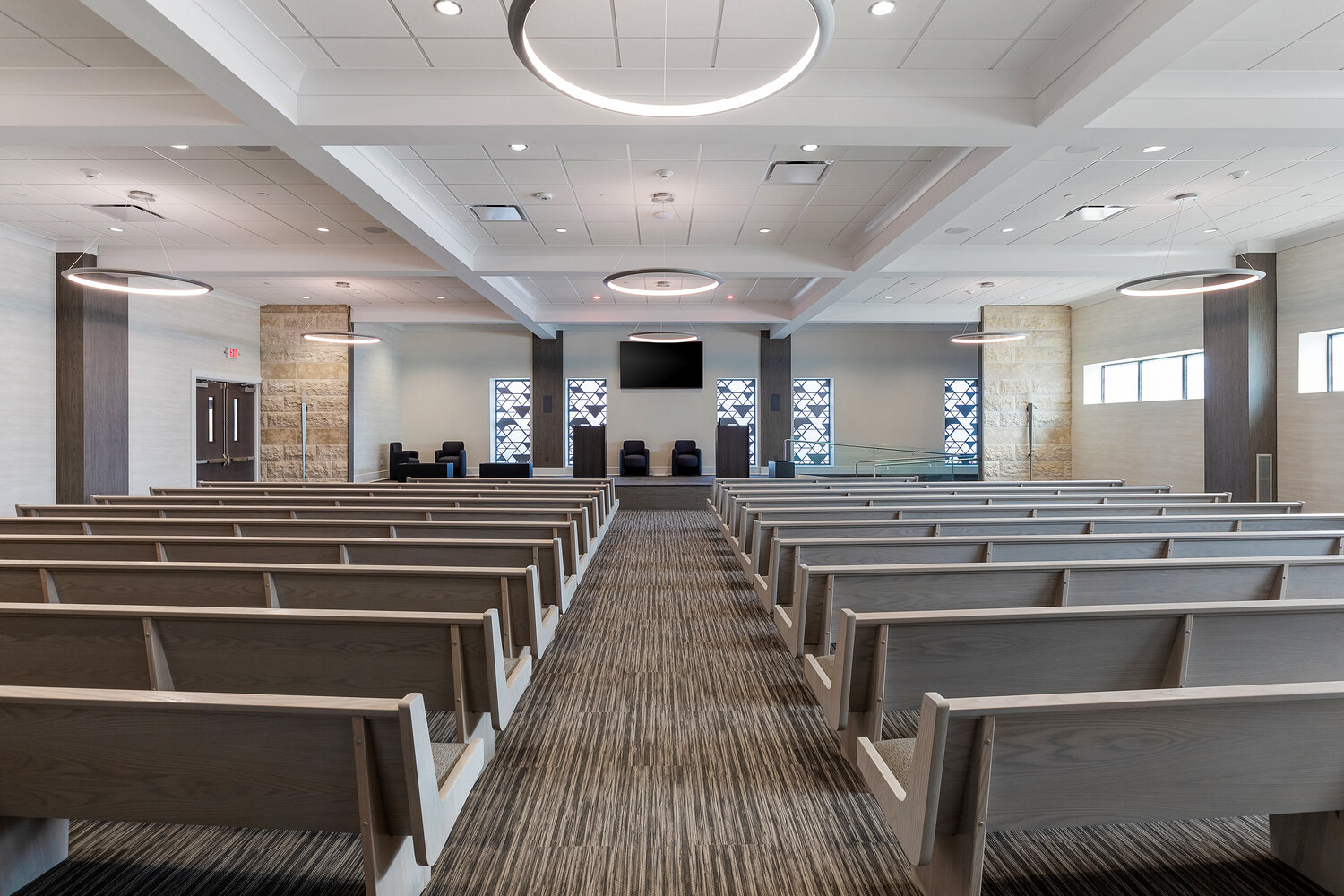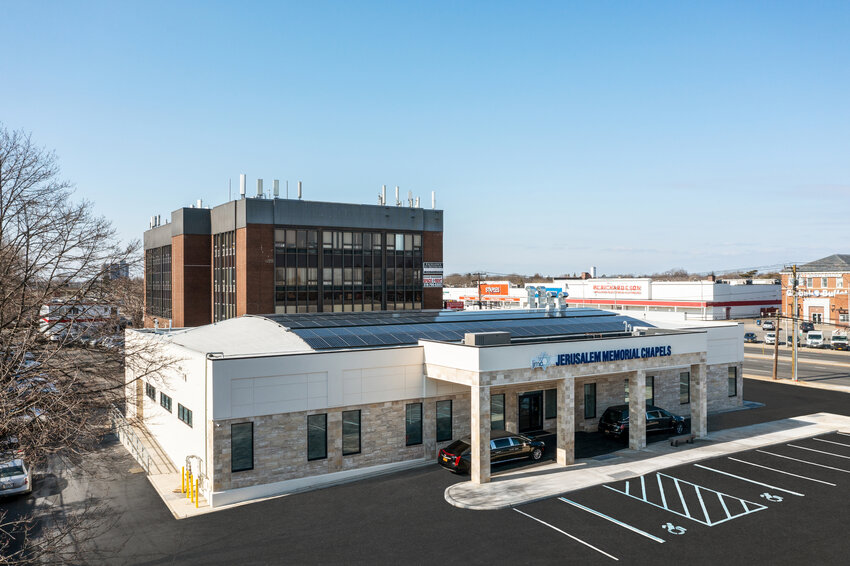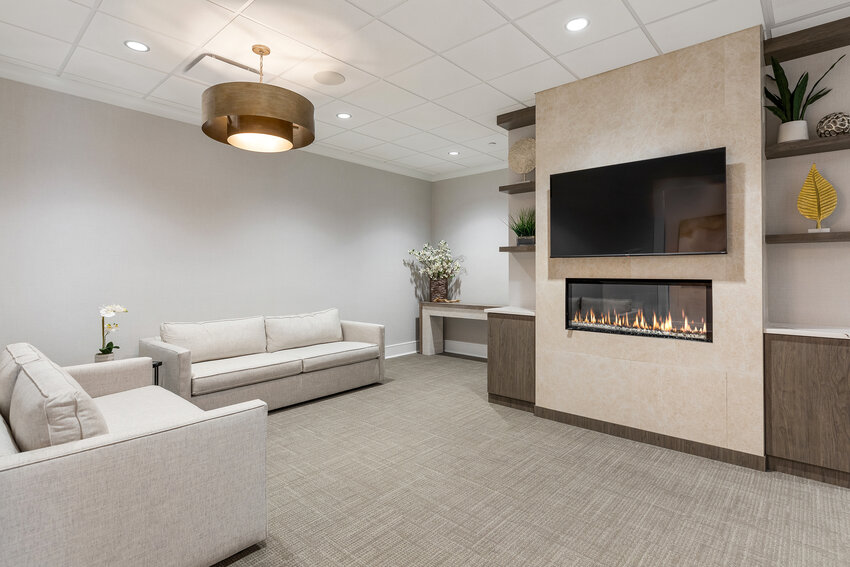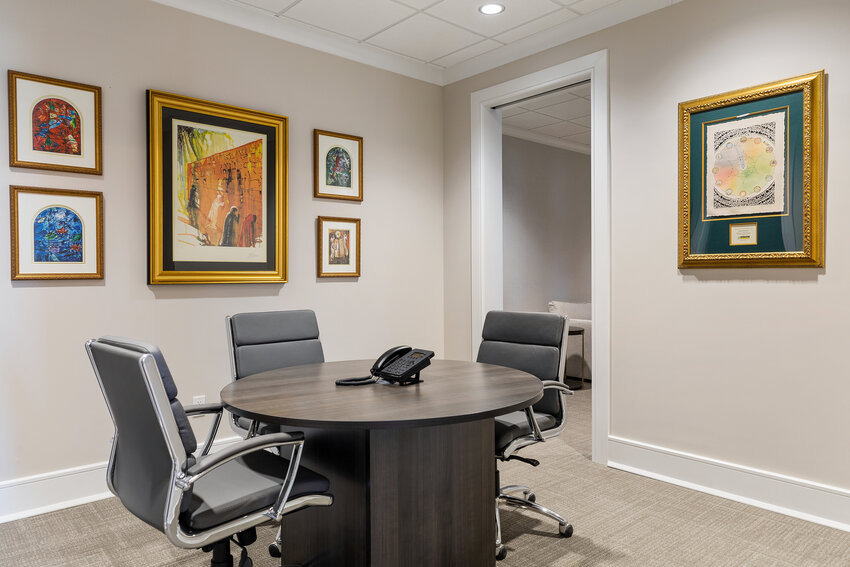How Jerusalem Memorial Chapels designed its Shomer Suite, Tahara Room, and Rabbi Study to honor Jewish burial traditions and improve family healing
When longtime funeral director Adam Novak first partnered up with Robert Wolk and David Sakhai to launch Jerusalem Memorial Chapels in 2020, Novak said he had already formed a “mental checklist” of exactly what he envisioned for the funeral home.
And lucky for the trio, they had a large, blank canvas to mold from their picture of what a funeral home should be.
Located at 3026 Hempstead Turnpike in Levittown, the Jewish-run, Jewish-owned, and Jewish-operated funeral service strives to provide its “own form of healing” through the design of the space, said Wolk. At Jerusalem Memorial Chapels, the goal is to establish a tranquil atmosphere for families going through this difficult grieving period — from the funeral arrangements to the burial.
The building’s design incorporates a bright and airy chapel, open but warm family room, a roomy comfortable conference room to meet with families, a casket display room with an array of options and price points, and large bathrooms to ensure there are never any lines.
For families with more traditionally Jewish services, a separate religious preparation area has been created to oversee the body preparation through traditional Jewish bathing. This feature is unique to Jerusalem Memorial Chapels and not found at other Jewish funeral homes on Long Island.
“The good thing about buying a 20,000 square-foot building that was gutted is you can try to play around with where to put rooms and what to do,” Novak said. “I always thought that the funeral home should have a separate area — it's more respectful, it's more meaningful, it's needed.”
How does Jerusalem Memorial Chapels prepare for the traditional Jewish burial?
Jerusalem Memorial Chapels allow the Jewish tradition of Tahara — the ritual washing, bathing and dressing of the body in the ceremonial shroud — to be performed in a couple of ways.
Novak said he and the funeral home partners built a separate preparatory area for the Tahara to take place.
“Before I was in the industry, I would have thought that this was something that was just everywhere — that's just not the case in most funeral homes, it just wasn't something that was built out way back when. A lot of funeral homes were built a long time ago and it's tough to rework and change their structure.”
The chevra kadisha is a religious organization of volunteer members who perform the Tahara. Novak said they host the Vaad Harabonim of Queens, which is overseen by Rabbi Elchonon Zohn.
The preparatory room includes all the necessary resources for the chevra kadisha to perform the tahara, which includes a mikvah — a religious bathtub used for the purpose of ritual immersion in Judaism to achieve ritual purity.
Jerusalem Memorial Chapels also provides the chevra kadisha with their own exclusive refrigeration unit for the religious preparation.
“Rabbi Zohn has come and he's given us the thumbs up,” Novak said. “He and his organization really appreciated the work we did to build them their own separate preparatory area.”
The Shomer Suite
A shomer, or shomeret, is the name for the person who comes, sits and prays with the deceased body while it is at the funeral home.
Novak said that once a person passes away, their neshama, or soul, will escape the body and begin its ascension to Heaven. According to the Jewish faith, it takes the soul seven days to reach Heaven — this is called the shiva or the mourning period.
However, shiva can not begin until the body and casket is buried. In the meantime, the job of the shomer is to tend to the body with prayers and psalms while the person’s soul is in “a state of flux,” Novak said.
Out of respect for the shomer and the time they need to spend with the deceased person, Jerusalem Memorial Chapels built what they call a Shomer Suite. This facility is a dedicated, Shabbos-friendly space for the shomer that includes a bedroom and full bathroom.
Shabbos is the Jewish day of rest and the religious person is not meant to work on that day, which includes being prohibited from turning on and off lights or other electrical appliances.
The Shomer Suite at Jerusalem Memorial Chapels includes a Shabbos clock, lamp and other details to make the visitor comfortable during their stay.
“They don't have to be out in the hallway on a couch — they can be in their own room. We give them a place for them to study, to pray, and to sleep,” Novak said.
“They are doing a good deed — a mitzvah — and deserve to be treated with respect.”
Rabbi Study and family rooms
Jerusalem Memorial Chapels established a primary and secondary family room with a Rabbi Study thoughtfully located in between the family rooms to allow easy access for the family in mourning on the day of services.
Novak noticed the clergy study is always situated away from the family, which means they would have to leave the family room and walk through guests to get to the rabbi. By placing the clergy study right in between the two family rooms, there’s quicker access.
“We are traditional enough for the most religious person, but we could be flexible enough for the most non-religious who still want to see tradition upheld,” Novak explained. “No matter how religious you are, this should be a comfortable space for you to ask questions, to gain information and to make informed decisions on what’s best for your loved one.”
Contact Jerusalem Memorial Chapels
• Address: 3026 Hempstead Tpke, Levittown, NY 11756
• Website: https://jmchapels.com/
• Phone: (516) 418-7000









